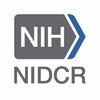
Thalidomide to Treat Oral Lesions in HIV-Infected Patients
Acquired Immunodeficiency SyndromeBurning Mouth Syndrome1 moreThis study will test the effectiveness of topical thalidomide in healing mouth sores in HIV infected patients. Oral (PO) thalidomide heals these sores at a dose of 200 mg per day. However, PO thalidomide can cause drowsiness, skin rashes, allergic reactions, increased viral load, and even nerve damage that may not be reversible. This study will evaluate the efficacy of a topical formulation of thalidomide (placed directly on the surface of the sore) for the healing of these sores. Persons with HIV infection of acquired immunodeficiency of at least 18 years of age with one or more chronic, painful intraoral lesions may be eligible for this study. Subjects must be referred by a primary care physician who is managing their care, and must have HIV/AIDS status confirmed. Patients' HIV treatment regimen will not be altered and those receiving highly active therapy will not be excluded. Patients will be excluded if they are concurrently being treated for mucosal lesions (including topical or systemic steroids, viscous lidocaine, topical or systemic anti-fungals, or mouthwashes), or concurrent thalidomide therapy; receving chemotherapy or radiation therapy for neoplasms; using concurrent acute therapy for opportunistic infections; concurrent use of sedatives (such as CNS depressants or alcohol use); history of allergy to thalidomide; pre-existing peripheral neuropathy of grade II or higher; pregnant or lactating females or those not practicing contraception according to FDA guidelines for thalidomide.

A Double-Blind, Randomized Parallel Group Study Comparing Procysteine to Placebo in HIV-Infected...
HIV InfectionsTo compare the efficacy and safety of orally administered Procysteine with placebo in HIV-infected patients who are receiving 1 of the following: (1) zidovudine (AZT) alone; (2) didanosine (ddI) alone; (3) AZT plus ddI; or (4) AZT plus zalcitabine (ddC).

A Phase I/II Clinical Study of WF 10 IV Solution ( TCDO ) in Patients With HIV Infection
HIV InfectionsTo evaluate the clinical toxicity, safety, and MTD of WF 10 ( TCDO ) intravenous solution administered to patients with HIV infection. To evaluate the potential anti-HIV activity of TCDO.

A Double-Blind, Randomized, Comparative Study of Delavirdine Mesylate (U-90152S) in Combination...
HIV InfectionsTo evaluate the safety, tolerance, pharmacokinetics, and efficacy of delavirdine mesylate (U-90152S) in combination with didanosine (ddI) versus ddI alone in HIV-positive patients.

A Long-Term, Follow-On Safety Study of Four Doses of OPC-8212 (Vesnarinone) in HIV-Infected Persons...
HIV InfectionsTo examine the continued safety and tolerability of four doses of vesnarinone in HIV-infected patients who have completed a short-term study (less than 12 months on continuous treatment) of the drug.

A Study of PMPA in HIV-Infected Patients
HIV InfectionsThe purpose of this study is to see if it is safe and effective to give PMPA to HIV-infected patients. This study also examines how the body handles PMPA.

A Study of Megestrol Acetate in HIV-Infected Children
HIV InfectionsThe purpose of this study is to see if megestrol acetate is safe and effective in treating HIV-infected children with failure to thrive (FTT).

A Phase I Trial to Evaluate the Safety, Pharmacokinetics and Antiviral Activity of 141W94 After...
HIV InfectionsTo assess the safety and tolerance of multiple oral doses of 141W94 alone, in combination with 1592U89, and in combination with Retrovir and Epivir, administered to patients with HIV infection as measured by the development of clinical adverse experiences and laboratory test abnormalities. To determine the steady-state pharmacokinetics of 141W94 alone and in combination with 1592U89 after multiple oral dosing. To obtain preliminary evidence of antiretroviral activity of 141W94 alone and in combination with 1592U89, the antiretroviral effect of combined Retrovir/Epivir and the antiretroviral effect of 141W94 when added to Retrovir/Epivir or to 1592U89/Retrovir/Epivir.

A Study of 1592U89 in HIV-Infected Children
HIV InfectionsThe purpose of this study is to see if it is safe to give 1592U89 to children (aged 6 months until 14th birthday) with advanced HIV infection who have few treatment options available. The study also examines the effect 1592U89 has on the levels of HIV in the blood.

A Study of Adefovir Dipivoxil in HIV-Infected Patients Who Have Not Been Treated With Anti-HIV Drugs...
HIV InfectionsThe purpose of this study is to see if it is safe and effective to give adefovir dipivoxil once a day for 4 weeks to HIV-infected patients who never have been treated with anti-HIV medicine. This study also examines how the body processes adefovir dipivoxil.
